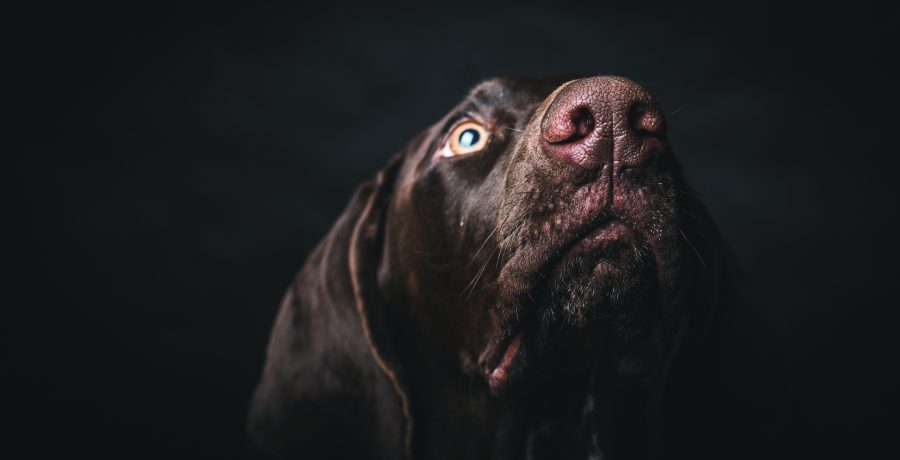Emmylou is a three-year-old filly from the Devil’s Garden Herd Management Area in the Modoc National Forest of northeastern California. She was born in Bureau of Land Management (BLM) holding pens in 2017 and was adopted out as a weanling (a term used to describe a young horse that has just been weaned, usually between 6 months and 1 year old). Her original adopters were unable to keep her, and she was returned to BLM Ridgecrest when she was a long yearling (between 1 and 2 years old). The day after she was returned, members of our War Horse Creek team happened to arrive to BLM Ridgecrest, planning to adopt two mustangs to gentle for our program.
Our War Horse Creek program is an immersive, comprehensive reintegration and life skills training program using rescued wild mustangs to assist veterans in their transition from military to civilian life. Operated out of the Living Free Animal Sanctuary in Mountain Center, California, our “Collaborative Horsemanship” training model has been designed specifically for veterans. The training concept takes a page out of the military playbook, including immersion and a program that will prepare veterans for a successful return to civilian life and their new role.
Even though our War Horse Creek team was looking for geldings that day, Grant Lockie, the Regional Wild Horse and Burro Corrals Manager, made sure to introduce us to Emmylou, sensing she would be a good fit for our program. Her original adopters had obviously been very kind to her, and she was well-adjusted, with the amiable temperament that Devil’s Garden mustangs are known for. COURTESY LIVING FREE ANIMAL SANCTUARY
COURTESY LIVING FREE ANIMAL SANCTUARY
We spent the next day or so observing and selecting two geldings (who are now known as Hawkeye and Trapper), but we couldn’t forget the little filly in the front pens. Ray Barmore, the War Horse Creek Equine Trainer and Manager, mentioned that maybe we’d be back for her in the next couple of weeks, to which Grant replied, “She won’t be here long. She’s a great little horse. Someone will take her.” We had room in our trailer, so we decided to adopt her that day. We couldn’t have made a better decision. We are grateful for Grant’s subtle salesmanship. He was exactly right—Emmylou has turned out to be a perfect fit for our program.
Emmylou has a confident, mischievous, curious nature. When she was younger, she enjoyed untying visitor’s boots, playing with hair ribbons, and pulling things out of their pockets. She has matured and no longer does those things, but still loves the attention and connection with humans. Emmylou is now almost 16 hands (or 64 inches tall) and will keep growing for the next year or two. Her size and athleticism combined with her gentle, curious nature make her a perfect horse for groundwork training with veterans.
Before we started having veterans work Emmylou, our team members Dena Barmore and Amara Wilson did a lot of groundwork with her, channeling that youthful energy into a happily working, engaged horse. She is now very polite and well behaved (most of the time) but still maintains her curiosity and willingness to collaborate.
Ray was patient in preparing her to ride, and that paid off, too. The first time he got in the saddle, she didn’t seem to mind at all. She was just trying to figure out how to balance his weight. Once she mastered that, she stepped off down the trail like she’d been doing it all her life. Since then, Ray has put more than 60 rides on her, and she’s rarely, if ever, made a bad step. She’s learned to trust Ray’s guidance and remains curious but not fearful as she faces new challenges—barking dogs, heavy machinery doing road work, and rattlesnakes beside the trail. Emmylou handles new experiences with the same confidence she had when she poked her nose through the rails at BLM to say hello. She continues to learn and improve with every ride.
As for working with the veterans, she is a perfect ambassador. Her size can be intimidating, but her curious, gentle nature is disarming, and vets connect very quickly. Emmylou loves the days when veterans are here, loves learning new things, and as she matures, is becoming more focused on the task at hand. As Ray Barmore says, “She’s been a delight and joy to bring along, and is understanding her job more and more each day.”
We thank Grant Lockie for the introduction, and Ray and Dena Barmore, and Amara Wilson for demonstrating that our Collaborative Horsemanship training is very beneficial for both vets and mustangs.


